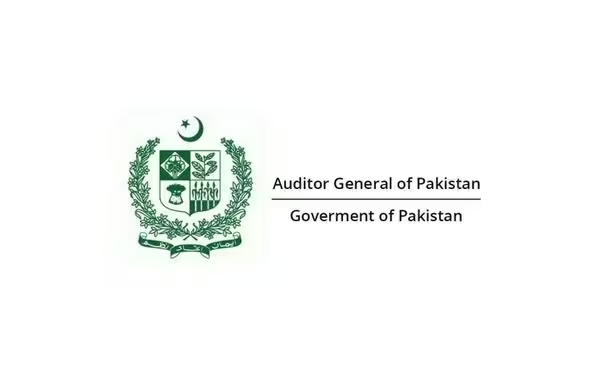Saturday, November 16, 2024 07:37 PM
AGP Raises Alarm Over Pakistan's Financial Mismanagement
- AGP highlights serious concerns over financial affairs.
- Debt servicing costs surge to 91.4% of budget.
- Government struggles with revenue generation and EFF conditions.
 Image Credits: brecorder
Image Credits: brecorderAGP raises serious concerns over Pakistan's financial mismanagement, highlighting alarming debt servicing costs and inadequate socio-economic funding.
The financial landscape of Pakistan is currently under severe scrutiny, particularly following the recent remarks made by the Auditor General of Pakistan (AGP). The AGP has raised "serious concern" regarding the country's "deteriorating financial affairs" as outlined in the audit report for the fiscal year 2023-24. This alarming situation is underscored by the fact that less than 4 percent of the staggering Rs38.67 trillion budget is allocated for socio-economic services. Furthermore, a staggering 93 percent of supplementary grants, amounting to over Rs8 trillion, remain unapproved by parliament and unspent, which the AGP describes as "representing a loss of public resources."
As the nation grapples with rising debt servicing costs, the implications for socio-economic services and the living standards of citizens are becoming increasingly dire. The debt servicing costs have surged from Rs25 trillion in FY22, which constituted about 84 percent of the total expenditure of Rs29.6 trillion, to Rs34 trillion in FY23, now accounting for nearly 91.4 percent of the total budget. This trend is unsustainable and poses a significant threat to the country’s financial stability.
The AGP's report highlights that a staggering "96.26 percent" of expenditures were directed towards General Public Service, which includes debt servicing, defense, and civil government expenses. This leaves the federal government with a mere "12 percent" of total expenditure for socio-economic functions, a decline from last year’s "16.07 percent." The situation is exacerbated by the fiscal and monetary constraints imposed by the Extended Fund Facility (EFF), which is crucial for avoiding default. These constraints further limit the government's ability to allocate funds for essential socio-economic services.
Pakistan finds itself in a classic debt trap, struggling to secure additional loans necessary to repay existing debts. The government’s reluctance to implement drastic structural changes raises concerns about its ability to meet the EFF's stringent conditions over the next three years. Moreover, the government appears to be undermining its revenue generation efforts by hesitating to tax politically protected sectors, despite public outcry and the treasury's pressing demands. This political maneuvering jeopardizes the country’s fiscal space and raises questions about its very survival.
The finance minister's optimistic proclamations stand in stark contrast to the reality on the ground. The market is already aware that the International Monetary Fund (IMF) did not include Pakistan in its executive board schedule for August, primarily due to the absence of guaranteed loan rollovers from friendly nations. This situation has led to a growing sense of frustration among these nations, who are increasingly reluctant to provide financial assistance without seeing tangible improvements in Pakistan's management and governance.
As the AGP prepares to sign the audit report for the outgoing fiscal year, it is evident that the country’s financial affairs are deteriorating at an alarming rate. The government must recognize that relying on external support is no longer a viable strategy. Instead, it must take decisive action to rectify its financial mismanagement and restore confidence among its citizens and international partners. If these issues are not addressed promptly, the consequences could be dire, leaving the nation in a precarious position with limited options for recovery.













